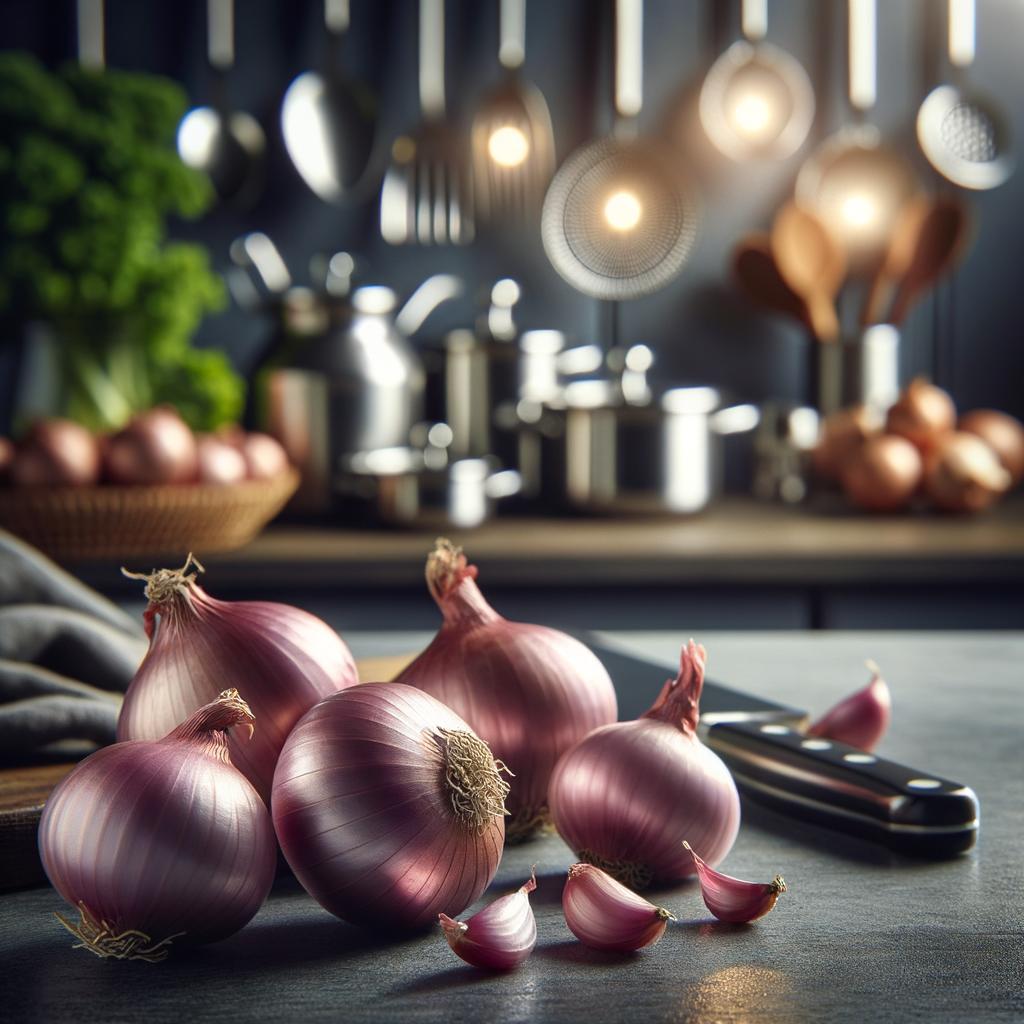Shallots

Description
Shallots are a delightful, yet often overlooked member of the allium family, sharing close relations with onions, garlic, and leeks. They are small, elongated bulbs that are encased in a thin, papery skin that varies from a golden-brown to a beautiful rosy hue. Once peeled, shallots reveal layers of creamy, crisp flesh that carry a subtly sweet, aromatic, and complex flavor - a perfect blend of garlic's depth and onion's sweetness. What sets shallots apart is their delicate flavor, which is milder and more refined than that of their allium siblings. They also have a unique characteristic of becoming incredibly sweet when cooked, making them a secret weapon in many gourmet kitchens.
Primary Uses
Shallots are a versatile ingredient, lending their delicate sweetness and depth to a variety of dishes. They are commonly used in French cuisine, where they are a key component in classic sauces like béarnaise and bordelaise. In Asian cuisines, particularly Thai and Indonesian, shallots are often fried until crispy and used as a flavorful garnish. They also make a lovely addition to vinaigrettes, marinades, and pickles, imparting a subtle sharpness. Beyond their culinary uses, shallots have been used in traditional medicine for their supposed antimicrobial and anti-inflammatory properties.
History
The history of the shallot is as layered as the bulb itself. Believed to have originated in Southwest Asia, shallots were a staple in the diets of ancient Greeks and Romans, who appreciated their unique flavor and purported health benefits. They were even mentioned by the Greek philosopher Theophrastus in the fourth century B.C. As trade routes expanded, so did the shallot's popularity, and it found its way into the cuisines of Europe, Africa, and Asia. In folklore, shallots have been associated with physical strength and endurance, with Greek athletes often consuming them before competitions.
Nutritional Information
Shallots are not just a flavorful addition to the kitchen but also a nutritional powerhouse. They are rich in vitamins A, B, and C, and minerals like potassium, iron, and folate. Like other alliums, they contain organosulfur compounds, which have been linked to heart health and cancer prevention. They also have a higher concentration of these compounds compared to onions, making them a healthier alternative. However, it's worth noting that, like all good things, shallots should be consumed in moderation as they are high in fructose, which could potentially lead to digestive issues in sensitive individuals.

